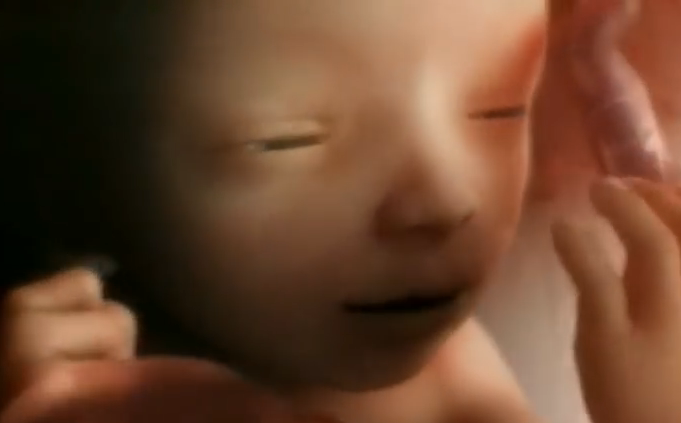New reports of fascinating research show babies can distinguish between their native language and foreign languages when they’re just a few hours old. A new study found that and suggests they start absorbing language before birth.
The report shows sensory and brain mechanisms for hearing develop by 30 weeks of the gestational age. The study’s authors said the unborn child starts listening to the mother’s voice during the last 10 weeks of pregnancy.
“The mother has first dibs on influencing the child’s brain,” said the University of Washington’s Patricia Kuhl, co-author of the study. “The vowel sounds in her speech are the loudest units and the fetus locks onto them.”
“This is the first study that shows fetuses learn prenatally about the particular speech sounds of a mother’s language,” said Christine Moon, lead author. “This study moves the measurable result of experience with speech sounds from six months of age to before birth.”
One news report provides more details:
To see just how early those abilities develop, Kuhl and colleagues tested 40 American newborns and 40 Swedish newborns, all between seven hours and three days old. While still in the hospital, each infant listened through headphones to 17 computer-generated examples of the English vowel sound used in syllables like “fee” and 17 examples of the Swedish vowel sound used in syllables like “fy.” During the experiment, babies sucked on sensor-equipped pacifiers.
CLICK LIKE IF YOU’RE PRO-LIFE!
When exposed to vowel sounds from their non-native language, babies sucked longer than they did if they heard vowel sounds that their mothers frequently spoke, the researchers will report in the journal Acta Paediatrica. Sucking longer is an established response in infants to something that is unfamiliar or novel to them.
“The results of our study support the hypothesis that language experienced in utero affects vowel perception,” the researchers wrote. “These results suggest that birth is not a benchmark that reflects a complete separation between the effects of nature versus those of nurture on infants’ perception of the phonetic units of speech.”
Because human life starts well before birth, it is no surprise that human learning starts well before birth. Science is showing us that the 9 months spent inside our mother’s womb is a time we take cues from our mother and her environment. Some of these cues will stay with us for our entire lives.








